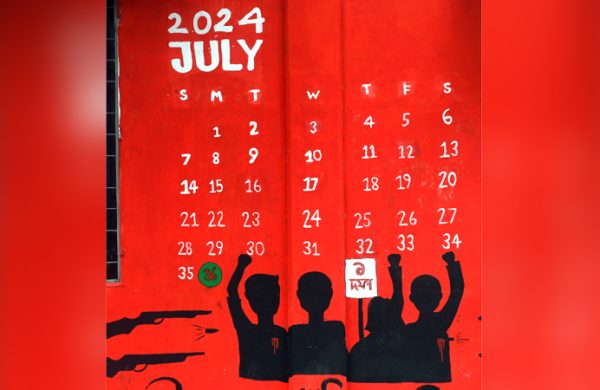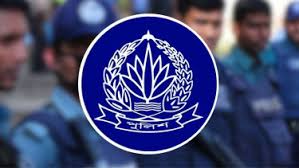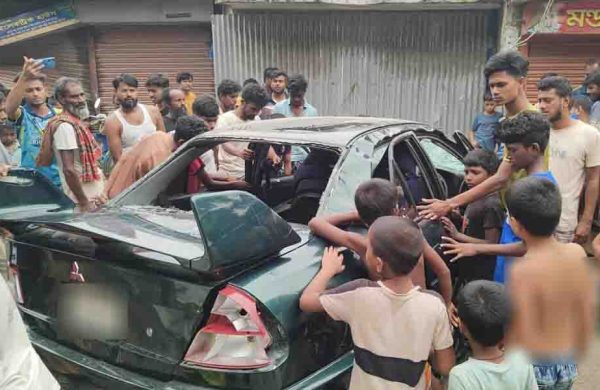One year of new history in Bangladesh: 1st July marks incredible start of AL regime fall
- Update Time : Monday, June 30, 2025

TDS Desk:
Bangladesh saw an unimaginable start of fall of the autocratic Awami League (AL) regime on the very first day of July last year as the day was gripped by student protests turning the ‘quota reform movement’ into an ‘anti-discrimination student movement’.
The people of the country even never imagined the quota reform movement which started getting momentum on the first July eventually to be evolved into “July Uprising” participated by student-mass people, ending the almost 16 years autocratic rule of AL.
The displeased students merely heralded the protest to press their demand of rescinding the quota system in government jobs after a High Court (HC) order that declared illegal the government’s 2018 circular scraping quota in recruiting first and second class officers in government services.
Earlier, the deposed government was compelled to issue the circular repealing quota in 2018 amid extensive student protest that was subjected to violent attacks by AL’s student wing Bangladesh Chhatra League cadres.
However, the anger of students re-emerged after the court order that reinstated the 56 percent quota system including 30 percent for descendents of freedom fighters who joined the Liberation War in 1971 and 10 percent for women, 10 percent for residents of backward districts, 5 percent for people from minority groups, and 1 percent for people with disabilities.
The agitating students promptly took to the streets against the restoration of the quota system considering it a deprivation for meritorious students.
The student movement then spiralled into uprising as the government wanted to harshly tackle the protesters unleashing security forces and pro-AL cadres on them, killing at least 1,400 and injuring approximately 20,000 leaving the whole country in a pool of blood.
Bangladesh witnessed a barbaric crackdown on unarmed protesting student-people after the Liberation War which many people perceived that the July uprising was so terrible and intensive in the context of violence, ensuring the AL government’s fall after it came to power in 2008.
Since the movement started intensifying on July 1, it basically started on June 5 with Dhaka University (DU) students’ immediate reaction to the High Court (HC) order declaring illegal the government circular issued in 2018.
“In the afternoon on June 5 in 2024, I was getting my Scotty repaired at a garage at Chankharpool beside Dhaka Medical College. At that time I learnt through a facebook page that the HC reinstated the quota system in government jobs,” Asif Mahmud Shojib Bhuyain, one of the central coordinators of the movement, recounted in his book titled ‘July: Matribhumi Othoba Mrityu’.
Frustrated by the HC order that “ruined their achievements” gained through a stiff student movement in 2018, Asif, now an advisor of the Interim Government, said, “We acquired some achievements through political struggles in 2018. Seeing the news (of reinstating the quota system), I realized that our struggles for rights are becoming worthless”.
Thus, he said, they called a meeting involving some general students in front of the Central Library on the DU campus to show immediate reaction against the HC order.
After a short discussion, the students brought out a procession under the banner of ‘Students of Dhaka University’ from library premises around 7:30pm. The procession ended at the same venue following a short rally where they rejected the HC order saying, “It is like mockery with meritorious (students).”
From the rally, DU Sociology student Nahid Islam, also a central key-coordinator and now NCP chief, declared a protest programme at 5pm on the next day (June 6) at Raju Memorial Sculpture, demanding restoration of the 2018 circular.
Approximately five to six hundred DU students took part in the procession and chanted slogans like ‘we don’t accept the quota system’, ‘we don’t accept HC order’, ‘scrap quota system and you must do it’.
Echoing Asif, Nahid also recalled their first meeting in front of the DU central library and how they convinced the general students to get involved in the movement against the HC order on June 5.
“We got scope to stage demonstrations only for three days before the university went into a long vacation marking the Eid-ul-Azha,” said Nahid, also a former advisor to the interim government.
On June 6, however, students of major universities, including Dhaka, Jahangirnagar, Rajshahi, Chhattogram and Jagannath, across the country and students of different colleges in the city staged huge demonstrations demanding restoration of the 2018 government circular.
On June 9, the students brought out processions on their respective campuses while a group of students submitted a memorandum to the Attorney General over filing a petition against the HC order, following a procession on the Dhaka University campus.
The demonstrations in the universities prompted the state to file an early appeal with the chamber court of the Appellate Division on the same day (on 9 June), seeking a stay on the HC verdict. However, the Appellate Division set July 4 for hearing on the plea.
Besides, the university students again held protest procession and rallies on June 10 from where they gave an ultimatum to the government to reinstate the 2018 circular by June 30 and threatened to go on an all-out movement if the demand is not met by that time.
“As our university declared Eid holidays till June 30, we set the date as the deadline for our ultimatum. We also warned that we would resume our movement if the government fails to meet our demand,” Asif recalled.
However, as the demand was not met by June 30, the students of different universities, including Dhaka, Jagannath, Jahangirnagar, Rajshahi, Chattogram, Barishal and Bangladesh Agriculture universities, along with different colleges across the country staged demonstrations. The students of Jahangirnagar University blocked the Dhaka-Aricha Highway for sometimes to press home their demand.
DU students brought out a procession under the banner of ‘anti-discrimination student movement’ from the central library premises which ended at Raju Memorial Sculpture.
From the rally, Nahid Islam announced a boycott of classes and exams at all universities and colleges until July 4.
He also declared a three-day protest programme- mass street procession on July 2 and gathering of students of Jagannath University, seven government colleges affiliated to Dhaka University and other institutions in the capital under the National University at Raju Memorial Sculpture on July 3 and 4.
From the rally, Nahid also placed four more demands that included making a commission to reform the quota system as soon as possible to facilitate the people of backward section, fulfilling the vacant seats with talents instead of quota in instances when seats allocated under quotas are not filled up, maintaining transparency in the administration and the quota facility cannot be used more than once in the recruitment examination of government jobs.















